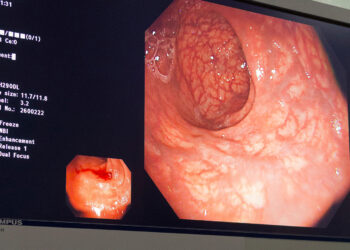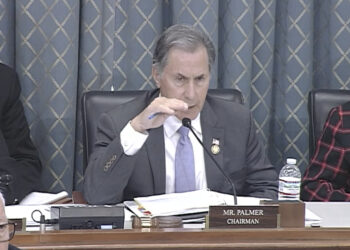TOPLINE:
Esophageal Candida infection is linked to an 8.2-fold increased risk for esophageal cancer in patients with achalasia, according to results of a retrospective cohort study. Older age at diagnosis and male sex were also associated with an increased risk.
METHODOLOGY:
- Researchers conducted a study in of 234 patients with achalasia between January 1980 and May 2024 (median age at diagnosis, 45 years, 50% men), looking at the prevalence of Candida and its association with the risk for esophageal cancer for a median follow-up of 13 years.
- The primary outcomes were the prevalence of Candida infection and the development of esophageal cancer; diagnosis was made on the basis of endoscopy findings and confirmed through histologic examination.
- The risk for esophageal cancer was evaluated in 207 patients who had at least two consecutive endoscopy follow-up visits (median age at diagnosis, 43 years; 50% men); the median follow-up time for this subgroup was 16 years.
TAKEAWAY:
- During follow-up, 12% of patients experienced at least one esophageal Candida infection, with the cumulative risk reaching approximately 20% by 30 years after diagnosis.
- Esophageal cancer progression was noted in 10% of patients, the majority of which (79%) developed esophageal squamous cell carcinoma.
- Prior esophageal Candida infection was associated with an increased risk for esophageal cancer (adjusted hazard ratio [aHR], 8.24; P P P = .04).
IN PRACTICE:
“Findings from our study emphasize the necessity of improved reporting of esophageal candidiasis during the surveillance of achalasia, and patients diagnosed with esophageal Candida infection should be considered for regular surveillance endoscopy for early detection of EC [esophageal cancer],” the authors wrote.
SOURCE:
The study was led by Xiaopei Guo, MD, from the Erasmus University Medical Center in Rotterdam, the Netherlands. It was published online in JAMA Network Open.
LIMITATIONS:
This single-center study focused on patients diagnosed with achalasia from 1974 to 2016, but information on subtype classifications was not available for most of the patients as classifications were established in later guidelines. Known risk factors for esophageal squamous cell carcinoma, including alcohol intake, smoking, and nitrosamine consumption, were not included in this study.
DISCLOSURES:
This study did not report any source of funding. Few authors reported receiving royalties or fees, serving as speakers or consultants, or having other ties with many pharmaceutical companies, societies, and institutions.
This article was created using several editorial tools, including AI, as part of the process. Human editors reviewed this content before publication.
Source link : https://www.medscape.com/viewarticle/candida-associated-esophageal-cancer-risk-achalasia-2025a10001in?src=rss
Author :
Publish date : 2025-01-22 13:07:49
Copyright for syndicated content belongs to the linked Source.














